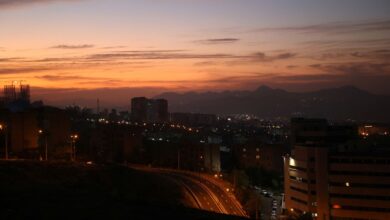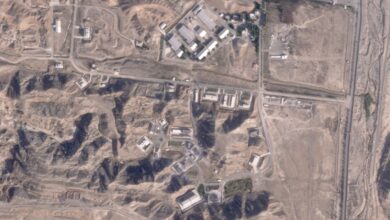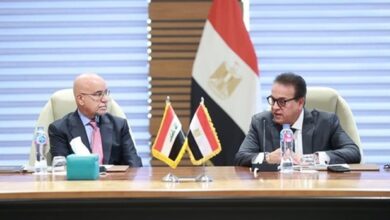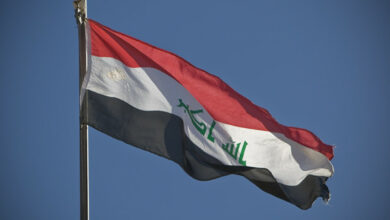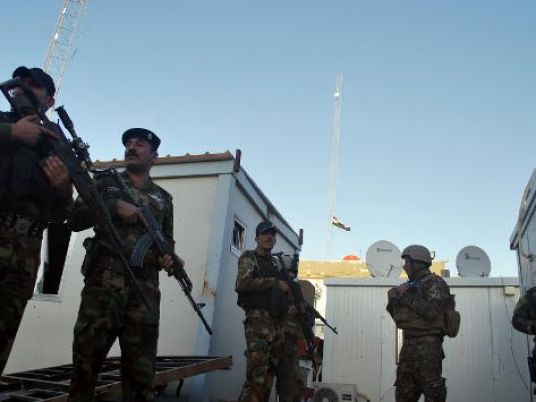
Iraqi Prime Minister Nuri al-Maliki on Wednesday reversed a decision to withdraw soldiers from Anbar cities and ordered reinforcements to the mainly Sunni Arab province to tackle attacks by militants.
Clashes broke out in Anbar, west of Baghdad, as security forces tore down a year-old Sunni Arab protest camp outside the provincial capital Ramadi on Monday.
On Wednesday, police reportedly left many positions in the Anbar city of Fallujah, while militants torched police stations both there and in Ramadi.
“We will not withdraw the army” and “we will send additional forces,” Iraqiya state television quoted Maliki as saying in response to what it said were requests from residents and the provincial government.
Maliki had announced on Tuesday that the army would withdraw from Anbar cities and hand over control to police, in an apparent bid to calm tensions that spiked after the protest camp's removal.
The deadliest fighting took place on Monday, when 10 people were killed in the Ramadi area, but the violence has continued.
On Wednesday, gunmen attacked the main police station in Fallujah and ordered its staff to leave, before raiding its armoury and freeing 101 prisoners from its cells, police said.
Other police stations in the city were torched by militants as most police abandoned their posts.
In Ramadi, farther west, security forces clashed sporadically with militants, who burned four police stations and two military vehicles, an AFP journalist reported.
Pictures posted online and said to have been taken in Ramadi showed militants driving a police Humvee decked with a black flag of the sort often flown by jihadists.
The removal of the protest camp was a victory of sorts for Maliki, who had long wanted it gone and had termed it a “headquarters for the leadership of Al-Qaeda”.
But it has carried a high price, not only in terms of the deteriorating security situation in Anbar, but also in the political fallout.
Forty-four MPs announced on Monday that they had submitted their resignations, and called for “the withdrawal of the army from the cities and the release of MP Ahmed al-Alwani.”
Alwani, a Sunni Arab MP who was a leading supporters of the protest camp, was arrested in a raid on his Ramadi home on Saturday in which his brother, five guards and a security forces member died.
Protests broke out in Sunni Arab-majority areas of Iraq late last year after the arrest of guards of then-finance minister Rafa al-Essawi, an influential Sunni Arab, on terrorism charges.
The arrests were seen by Sunnis as yet another example of the Shiite-led government targeting their leaders.
In December 2011, guards of vice president Tareq al-Hashemi, another prominent Sunni politician, were arrested and accused of terrorism. Hashemi fled abroad and has since been given multiple death sentences in absentia for charges including murder.
The demonstrations have tapped into longstanding grievances of Sunnis, who say they are marginalised by the Shiite-led government and unfairly targeted with heavy-handed tactics by security forces.
And while the government has made some concessions aimed at placating them, including freeing prisoners and raising the salaries of anti-Qaeda militiamen, underlying issues remain unaddressed.
Violence in Iraq has reached a level not seen since 2008, when the country was just emerging from a brutal period of sectarian killings.
Areas outside Anbar were also hit by violence on Wednesday.
In the northern city of Mosul, a car bomb exploded near an army checkpoint, killing a civilian and four soldiers, three of them officers, and wounding 11 people.
In Tarmiyah, north of Baghdad, militants attacked a police station, killing at least two police and wounding three.

